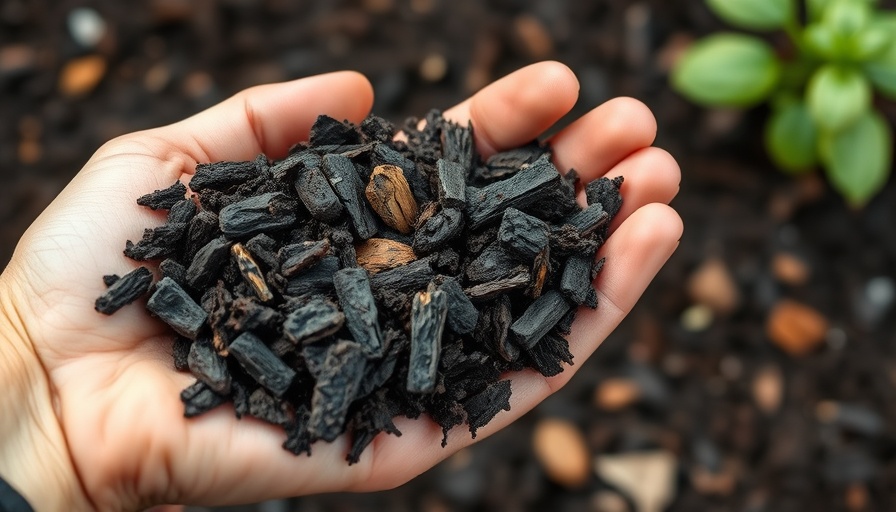
Understanding the Role of Mulch in Gardening
For many homeowners in Fairfield County, Connecticut, maintaining an attractive garden can seem overwhelming. However, mastering the art of mulch could transform your gardening experience and minimize maintenance efforts. Though it might appear merely decorative, mulch is a dynamic, multifunctional element in gardening that plays a pivotal role in promoting soil health, improving moisture retention, and controlling weeds.
The Multifaceted Benefits of Mulch
Homeowners might wonder: what exactly does mulch do for my garden? The answer is simple; it acts as a barrier that not only enhances the aesthetics of your garden but also contributes significant benefits to plant longevity and growth. Here are some ways mulch can serve you:
Weed Suppression and Less Tension
Are you tired of the relentless tug at weeds disrupting your flower beds? Mulch can be a game changer. By creating a barrier, it blocks sunlight from reaching the soil, which inhibits weed growth and decreases the time you spend weeding.
Moisture Retention to Keep Plants Hydrated
In the summer months, soil can dry out quickly, leaving plants thirsty. A layer of mulch acts like a sponge, capturing moisture and releasing it slowly, ensuring that your plants receive the hydration they need—even during sporadic summer droughts. This is particularly beneficial to residents who rely on their gardens for aesthetics or growing vegetables.
Stabilizing Soil Temperature
Extreme temperature swings can be detrimental to root health. Plants thrive best in stable environments, and mulch protects the soil from drastic temperature changes. By insulating the soil, mulch helps keep plant roots cool in summer and warm in winter, promoting a healthy growing environment year-round.
The Environmental Impact of Organic Mulch
For those looking to enrich their gardens sustainably, opting for organic mulch is not just beneficial for your plants—it’s great for the environment as well. Organic materials like grass clippings, leaves, or straw decompose over time, gradually enriching the soil with vital nutrients. This means that not only do you reduce waste, but you also create a healthier ecosystem in your backyard.
Reducing Your Carbon Footprint
Incorporating organic materials as mulch helps to mitigate your environmental impact. By utilizing these natural byproducts, you contribute to reducing landfill waste while also boosting your garden’s soil health and productivity.
Choosing the Perfect Mulch for Your Garden
Navigating the many types of mulch available can be daunting. Here’s a brief guide to help you choose the ideal mulch based on your garden's needs:
- Wood Chips and Bark: Ideal for flower beds and tree bases, they not only look appealing but also enrich the soil as they decompose.
- Straw or Hay: These lightweight options provide excellent weed control and are especially popular among vegetable gardeners.
- Compost: Compost is known as one of the best mulch materials for nutrient delivery and moisture retention, giving your garden a productive boost.
- Gravel or Stones: These inorganic options work well for paths or rock gardens that require less maintenance and aesthetic enhancement.
Enhancing Your Garden's Aesthetics
While functionality is key, let’s not forget about the visual appeal that the right mulch can lend to your yard. Purely decorative options—like colored wood chips or pebbles—can elevate the overall appearance of your property, increasing curb appeal and making your outdoor space a pleasure to spend time in.
Consider the Temperature of Mulch Choices
The colors of your mulch can also affect your plant environment. Darker varieties absorb heat, while lighter shades reflect it. Understanding these dynamics can help residents of Fairfield County decide on mulch that complements both their aesthetic preference and environmental needs.
In conclusion, whether you’re looking to improve your garden’s soil health or simply enhance its beauty, mastering the art of mulch can provide numerous advantages. By understanding the value of mulch and selecting the right type, homeowners can ensure they’re nurturing not just their landscapes but also the environment. Ready to transform your garden with the power of mulch? Let’s embrace sustainable gardening together!
 Add Row
Add Row  Add
Add 




 Add Row
Add Row  Add
Add 

Write A Comment